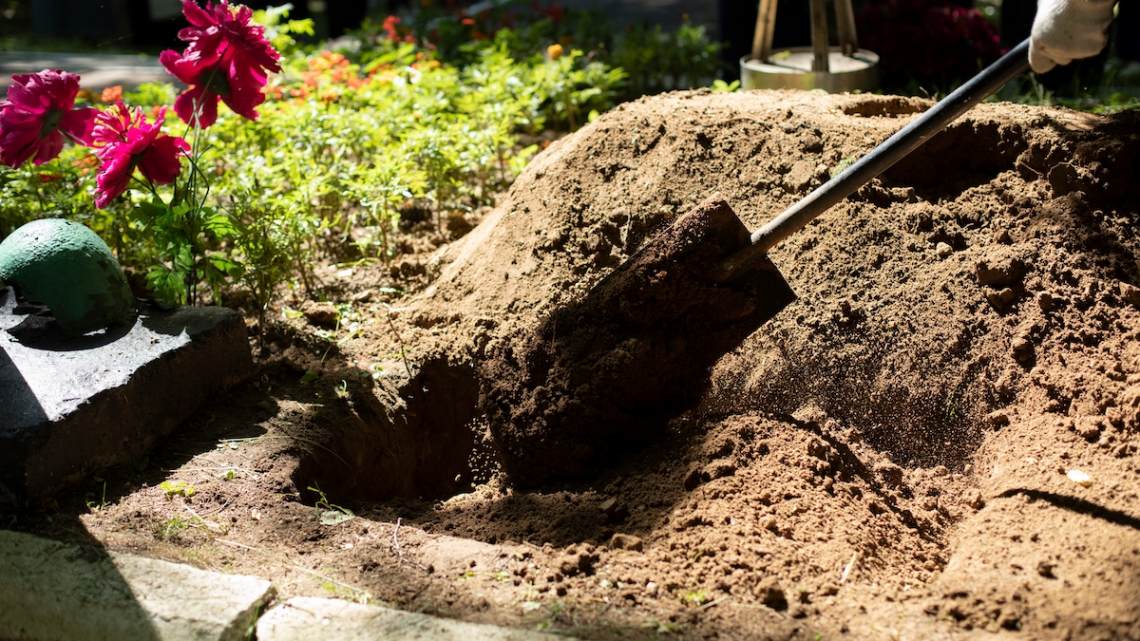Residents of Reading, Pennsylvania, recently found out that saying goodbye can be hard to do. In early October, they laid to rest a local icon, “Stoneman Willie.” The unidentified mummy had become a staple of the community and a macabre tourist attraction, drawing people nationwide to Auman’s Funeral Home, where he lay in state for more than a century.
Here’s everything you need to know about this mystery cadaver and his true identity.
Pennsylvania Just Got a Little Less Weird
The Keystone State has long cultivated a reputation for weirdness. Among its claims to fame are “Pittsburgh Potties,” freestanding toilets in basements with no bathroom-style amenities or privacy. And then there’s the state’s war on invasive lanternflies, which has somehow morphed into a bizarre pride point.
Other highlights of Pennsylvanian strangeness include Centralia, a ghost town that’s harbored underground fires since 1962 and the Mutter Museum in Philadelphia. The latter boasts Albert Einstein’s brain, a “megacolon,” the so-called Soap Lady, and a gruesome collection of human remains dating from the 7th through the 21st centuries.
Apparently, Pennsylvanians have a thing for collecting dead bodies, as the Mutter Museum and “Stoneman Willie” attest. Although technically one of the oldest mummies in the United States, the folks at Auman’s Funeral Home don’t like labels.
Funeral Director Kyle Blankenbiller explains, “We don’t refer to him as a mummy. We refer to him as our friend Willie. He has just become such an icon, such a storied part of not only Reading’s past but certainly its present.” All this has changed with the dead man’s much-publicized interment, making Pennsylvania a little less weird.
Stoneman Willie Went Out in Style
What’s the backstory for “Stoneman Willie,” and how did he end up in the ground? The fated guy’s tale began (or, rather, appeared to end) on November 19, 1895. That’s when the mystery-man-turned-mummy passed away from alcohol-induced kidney failure in a jail cell in Reading. (Law enforcement had incarcerated him on pickpocketing charges.)
Because he used an alias during his arrest, his identity remained a mystery for the next 128 years. Of course, 99% of people who perished under such circumstances in the 19th century went under the radar. What made “Stoneman Willie” different? A mistake. According to Auman’s Funeral Home, a mortician trying out a new form of embalming accidentally turned Willie’s corpse into a mummy. Oops!
The level of preservation proved remarkable, with the man’s hair and teeth intact. His skin took on a leathery appearance and stone-hard texture, thus earning him the nickname “Stoneman.” With no family stepping forward to claim the body, the only natural course of action in most states would’ve been burial in a pauper’s grave. But not so in Pennsylvania!
Instead, they dressed the gaunt body up in a suit, threw a red sash over his chest, and put him to work drawing crowds of curious onlookers. The remains also served a more official purpose. Auman’s Funeral Home petitioned the state to keep the body for further study of its bizarre embalming technique. And study they did … for decades upon decades.
A Funeral Fit for an Icon
They say patience is a virtue, and such proved the case for Willie. During festivities to commemorate Reading’s 275th anniversary, Pennsylvania’s favorite mummy finally got laid to rest. Festivities included a colorful parade and motorcycle hearse transporting Willie’s long-awaited casket.
Best of all, Auman’s Funeral Home used the celebration to finally reveal old Willie’s identity. In life, he went by James Murphy. The Irishman haled from New York and attended a firefighters’ conference in Reading where he ran afoul of the law … and life.
During the most poignant moment of the funeral, Pastor Robert Whitmire commemorated Murphy, noting, “Stoneman Willie … at one time may have been a beloved friend and family member.” Of course, no less could be said of him in death.
“Stoneman Willie” became a vital (though silent) part of Reading’s community, as attested by his lavish funeral procession and large tombstone. The marble headstone reads “Stoneman Willie” in large letters, with his real name in smaller font at the base. Maybe “Stoneman” is gone, but clearly, he’s not forgotten.
By Engrid Barnett, contributor for Ripleys.com









